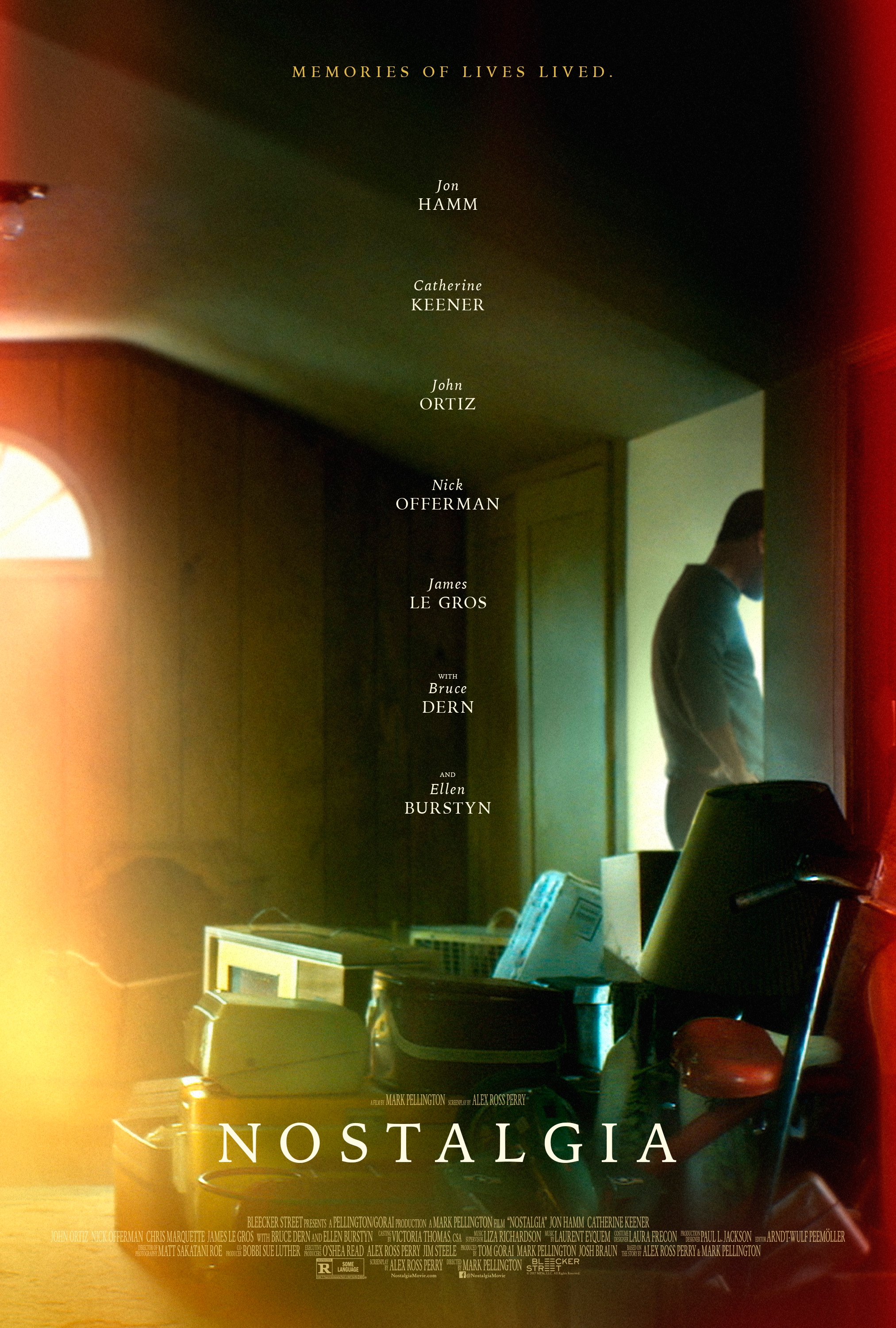Like something you might find tucked away in an attic or a basement, Mark Pellington’s Nostalgia is a plainly personal curiosity. Handmade with care and also a touch of clumsiness, it probably means a lot to those who have lived with it, so to speak, even if there are also plenty who will look at it and see only the imperfections. The film is a meditative riff on the star-studded ensemble drama (subcategory We Are All Connected), and as is often the case with such movies, it’s organized around a theme—here, the relationship people forge with their belongings and how what we accumulate accumulates significance over time. That’s a fertile topic, but also one explored ad nauseam elsewhere, perhaps most thoughtfully in Olivier Assayas’ gentle Summer Hours. Pellington, the music video veteran who made Arlington Road and The Mothman Prophecies, tackles it with an unusual mixture of raw feeling and clunky conversation. It’s an awkward concoction, but one too offbeat to entirely dismiss.
A thesis statement bent into the rough shape of a drama, Nostalgia doesn’t so much interweave the lives of its characters as move from one to another, like a keepsake exchanging ownership. We meet an appraiser (John Ortiz) who approaches each assignment with both awed curiosity and emotional distance. “It never hurts me personally,” he says of a job that often involves interacting with the bereaved and the suddenly homeless. “And it never gets old.” First seen helping an elderly hoarder (Bruce Dern) sift through his mountains of clutter—a task that triggers mixed emotions in the old man’s grown daughter (Amber Tamblyn)—the appraiser quickly passes nominal protagonist duties to another aged client, a widow (Ellen Burstyn) who loses her home and all of her possessions in a devastating fire, salvaging only a signed baseball that belonged to her late husband. Only marginally, abstractly attached to the ball, the woman heads to Vegas to get an estimate on its worth, at which point Nostalgia shifts focus again, following the rare-items dealer (Jon Hamm) as he helps his sister (Catherine Keener) clear out the family home.
Conceptually, it’s an interesting experiment, one that seems to adopt the almost archeological ambivalence of Ortiz’s character: Like him, we get to rifle through the personal lives (and revealing bric-a-brac) of strangers, before unceremoniously moving on to someone new. In execution, however, Nostalgia is less poetic, oscillating as it does between scenes of the actors either studying piles of junk in a contemplative daze, saxophone blaring melancholically in the distance, or delivering speeches that threaten to transform them into mouthpieces for conflicting attitudes about the value of material stuff. That second element is a clear hallmark of the film’s screenwriter, the indie maverick Alex Ross Perry (Queen Of Earth, Listen Up Philip), who’s developing a concerning habit of obliterating subtext through load-bearing lines like, “Can what we hold in our hands be the same as what we hold in our hearts?” In a lot of ways, Nostalgia plays like a companion piece to Perry’s own new movie, Golden Exits, which also involves assessing a life through the inventory of its remnants. There’s an alien theatricality to the dialogue, though here it’s also been paired with a certain hokey wistfulness, as when Ortiz caresses a brick building and romantically murmurs, “Lives lived,” to only himself.
Nostalgia, in other words, is often as bluntly on-the-nose as its title; if nothing else, it demonstrates that “low-key” and “subtle” are not synonyms, no matter how often the two qualities seem to go hand in hand. What rescues the movie, at least marginally, from its own pretensions, is Pellington’s understated direction, but also, especially, the performances he coaxes out of his actors, many of whom do wonders with roles small enough to be called cameos. Burstyn, for example, brings so much honest, anguished feeling to her handful of scenes that even the most contrived interactions—like the unbelievably candid conversation that surrounds the sale of her husband’s prized baseball—sound a little naturalistic. Likewise, Hamm gets to dig deeper than he has before on the big screen, tweaking some Draperian notes of aloofness into a credible emotional dimension, even when Nostalgia abandons its unsensational, slice-of-life-in-boxes approach for something closer to traditional tragedy. It’s the people that give belongings meaning, the film less-than-transcendently concludes. They can do the same for movies, too, even really imperfect ones.












![HBO teases new Euphoria, Larry David, and much more in 2026 sizzle reel [Updated]](https://img.pastemagazine.com/wp-content/avuploads/2025/12/12100344/MixCollage-12-Dec-2025-09-56-AM-9137.jpg)




























